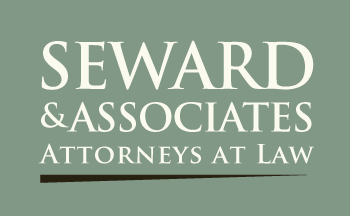Estate Tax Update
Federal Estate Tax, Gift Tax and Generation-Skipping Tax Exemptions
The 2016 federal exemption against estate and gift taxes is up to $5,450,000 per person adjusted for inflation, up $20,000 from the 2015 exemption which was $5,430,000 per person. This is up from $5,120,000 in 2012. Estates in excess of this exemption amount are subject to a 40% federal estate tax. The federal generation-skipping transfer tax exemption was also increased to $5,450,000 per person.
State Estate Tax Exemption
The 2016 Washington State estate tax exemption is $2,078,000 per person up from $2,054,000 per person in 2015, adjusted for inflation. Washington estates in excess of this amount are subject to a 10% – 20% Washington State Estate Tax. Even though the Washington State estate tax exemption has been increased to $2,078,000, the filing threshold for the Washington State Estate and Transfer Tax Return remains at $2,000,000. Each estate over $2,000,000 is required to file a Washington State Estate and Transfer Tax Return. The exemption amount remained at $2,000,000 during 2012 and 2013, and was first increased to $2,012,000 in 2014.
Federal Gift Tax Annual Exclusion
The federal annual gift tax exclusion remains at $14,000 for 2016.
Estate Planning Update
Supreme Court States Inherited IRAs Are Not Exempt From Creditors’ Claims
If you have an Individual Retirement Account (IRA), funds held in your account are exempt from your creditors. In other words, if you are in a car accident and a judgment is awarded against you, your IRA cannot be seized as payment. However, it was unclear previously whether the beneficiaries who received your IRA following your death would receive the same creditor protection that you received. Recently, in Clark v. Rameker, the US Supreme Court clarified this. The Court reasoned that Inherited IRAs (e.g., IRAs left to a spouse, children, grandchildren, or friends upon a participant’s death) are not “retirement funds” and therefore do not receive creditor protection. The one exception to this rule is for IRAs left to a surviving spouse who then “rolls over” the IRA and treats it as his/her own account. In this case, the IRA will remain creditor protected.
IRA Trusts – Creditor Protection For Inherited IRAs
When one door closes, another opens. In the wake of Clark v. Rameker, IRA Trusts have become much more popular. While an Inherited IRA left to an individual is not protected from that individual’s creditors, an IRA left to an IRA Trust for the benefit of an individual can be protected from that individual’s creditors. An IRA Trust is a trust specifically designed to allow the IRA to remain tax-deferred – stretching the required minimum distributions from the IRA over the life expectancy of the beneficiary. The IRA Trust can allow these distributions to be accumulated in the trust and held for the beneficiary’s benefit, or the distributions can pass directly to the beneficiary. If the IRA Trust includes language that prohibits the IRA Trust beneficiary from voluntarily or involuntarily alienating his or her interest in the IRA Trust (commonly referred to as a “spendthrift” provision), the beneficiary’s creditors cannot reach the funds in the IRA or in the IRA Trust.
Key Asset Protection Strategy – Based on the above we are recommending that clients use an “IRA Trust” as their IRA beneficiary instead of directly to their children in what becomes an “Inherited IRA” on your death which is not protected from creditors. If you have questions or would like to discuss your personal situation, please contact us and we would be happy to discuss how you can protect your hard earned assets for the benefit of your family.









 has a policy of never calling to collect without first mailing a notice, and has urged consumers to ignore scam calls. When private collectors begin calling taxpayers regarding back taxes, it will add to the confusion and make consumers more vulnerable to these scams. Consumer advocate groups are seeking further protections, such as excluding from the program low-income taxpayers and those who owe taxes under the Affordable Care Act.
has a policy of never calling to collect without first mailing a notice, and has urged consumers to ignore scam calls. When private collectors begin calling taxpayers regarding back taxes, it will add to the confusion and make consumers more vulnerable to these scams. Consumer advocate groups are seeking further protections, such as excluding from the program low-income taxpayers and those who owe taxes under the Affordable Care Act.